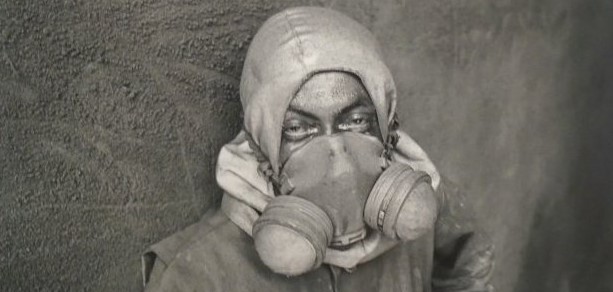Arab American Labor – اليد العاملة العربية الأمريكية
A Digital Humanities Project

The Khayrallah Center for Lebanese Diaspora Studies is thrilled to announce the release of a six-part series on the Arab American Labor movement in the early 20th century. The digital exhibit reclaims these hidden stories by outlining their struggle to support their families through racial animosity, economic turmoil, and a quickly evolving industrial landscape.
Developed by a team of NC State Graduate Students and Khayrallah Center for Lebanese Diaspora Studies Director, Dr. Akram Khater, the project aims to disrupt mainstream American labor histories by highlighting the position of Arab American workers in United States history. The project refers to “Arab Americans” to discuss the totality of the history; however, it also defers to “Syrian,” “Lebanese,” and “Yemeni” to discuss particular communities who self-identified as such.
Part one of this series collects the stories of Arab American mine workers between 1890 and 1935 from Colorado to New York. Part two documents the history of New York City seamstresses between 1870 and 1920, including child labor, kimono factories, Syrian women, and more. Part three traces the patterns of auto workers predominantly in Detroit between 1910 and 1970. Part Four pulls from the Khayrallah Center’s Legacies of Labor project which covers textile factory workers between 1890 and 1930 in Lawrence, Massachusetts. Part five interviews modern professionals in the United States to uncover the history of Arab American performance beginning in 1839. Finally, part six tracks Yemeni labor migration on California farms between 1960 and 1970.
Dr. Akram Khater expressed the purpose behind this project: “For far too long the stories of Arab American workers have been absent from the history of our community and that of the United States. We undertook this project to bring some of those stories to light, to show how Arab Americans are central to the history of America, and how they labored to build this country. Their stories are as relevant and existential today as they were throughout the 20th century.”
Chelsea Lundquist-Wentz, Graduate Research Assistant for the Arab American Labor Project, shared her experience: “The most impactful part of this project for me has been hearing the voices and learning the stories of individual Arab American workers, especially through oral histories and conversations with their family members. These first hand experiences provide an invaluable, new perspective about the link between the Arab diaspora and the 20th century American labor movement which has provided for workers across racial lines and of many nations of origin.”
The Arab American Labor Project is available as a free resource distributed by the Khayrallah Center for Lebanese Diaspora Studies (lebanesestudies.ncsu.edu). The digital exhibit will be released over the course of six-weeks beginning on September 4, 2023. The project is an evolving asset and will continue to grow. Educators, history enthusiasts, and anyone interested in the intersection of Lebanese migration and United States labor history are encouraged to download and utilize these materials.
This project would not be possible without authors and researchers Chelsea Lundquist-Wentz, Nicole Ackman, Ginni Leeman, and Dr. Akram Khater. The team worked closely with Khayrallah Center archivist Laura Lethers, the Arab American National Museum, award-winning film producer Josh Sabey, as well as dozens of museums and historical societies across the United States.
Media Contact:
Dr. Akram Khater
Khayrallah Center for Lebanese Diaspora Studies
919.515.5042
akhater@ncsu.edu
- Categories:


